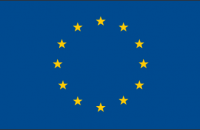
CEPS
Europe's leading independent think tank

- Published on
Who we are
Founded in Brussels in 1983, CEPS is a leading think tank and forum for debate on EU affairs, ranking among the top think tanks in Europe.
With an exceptionally strong in-house research capacity and an extensive network of partner institutes throughout the world, CEPS has amply demonstrated its ability to anticipate trends and to analyse policy questions well before they become topics of general discussion. At CEPS, researchers perform policy research on a wide range of policy areas: from the economy and finance to better regulation, the digital economy and trade, as well as energy and climate, education and innovation, foreign policy and the European integration process, or justice and home affairs. The main assets of CEPS are listed as follows:
- Complete independence to set its own research priorities and freedom from any outside influence;
- Eminently qualified research team of more than 60 analysts drawn from 23 different countries;
- Membership in various research networks and institutional settings, comprising research institutes and non-for profit organisations from all over Europe and beyond, to complement and consolidate CEPS’ research expertise and to greatly extend its outreach;
- An extensive membership base of some 120 Corporate Members and over 100 Institutional Members, which provide expertise and practical experience and act as a sounding board for CEPS policy proposals.
What we do
As one of the few think tanks in Brussels covering most European policy areas, we offer exchanges, provide insights on and potential solutions for EU policy-making through:
- Research projects
- Research publications
- Task Forces
- Regular events such as discussion forums, seminars, workshops
- Our flagship event Ideas Lab
CEPS’ work on fighting antigypsyism
Publication (2019): Scaling up Roma Inclusion Strategies. Truth, reconciliation and justice for addressing antigypsyism
Publication (2017): Combating Institutional Anti-Gypsyism. Responses and promising practices in the EU and selected Member States






